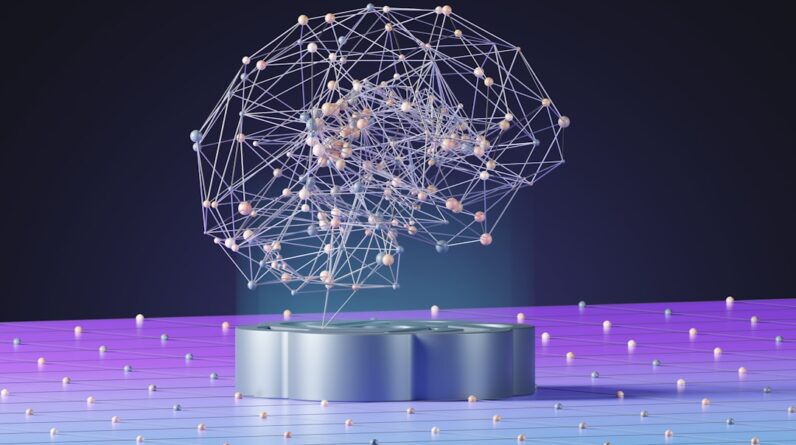Artificial Intelligence (AI) has emerged as one of the most transformative technologies of the 21st century, reshaping the way you interact with the world around you. From virtual assistants like Siri and Alexa to sophisticated algorithms that power recommendation systems on platforms like Netflix and Amazon, AI is becoming an integral part of your daily life. As you navigate through various tasks, whether it’s managing your schedule or finding the best route to work, AI is quietly working in the background, making your experiences more efficient and personalized.
This technology is not just a passing trend; it represents a fundamental shift in how machines can learn, adapt, and perform tasks that traditionally required human intelligence. The journey of AI began decades ago, rooted in the desire to create machines that could mimic human cognitive functions. Today, advancements in machine learning, natural language processing, and neural networks have propelled AI into new realms of capability.
You may find it fascinating that AI systems can now analyze vast amounts of data at speeds unimaginable to humans, uncovering patterns and insights that can drive decision-making across various sectors. As you delve deeper into the world of AI, it becomes clear that its potential is vast, and its implications are profound, prompting discussions about its impact on society, economy, and ethics.
Key Takeaways
- Artificial Intelligence (AI) is a rapidly advancing technology that aims to create intelligent machines capable of performing tasks that typically require human intelligence.
- AI has the potential to revolutionize various industries, including healthcare, finance, transportation, and manufacturing, by increasing efficiency, productivity, and innovation.
- The ethical and moral implications of AI advancement raise concerns about job displacement, privacy invasion, bias in decision-making, and the potential for autonomous weapons.
- AI is expected to transform the future of work by automating routine tasks, creating new job opportunities, and requiring workers to develop new skills to adapt to the changing labor market.
- The race for AI supremacy has led to global competition among countries and companies to lead in AI research, development, and implementation, raising concerns about data privacy, security, and geopolitical tensions.
The Impact of AI on Various Industries
As you explore the impact of AI across different industries, you will notice that its influence is both broad and deep. In the realm of finance, for instance, AI algorithms are revolutionizing how banks assess credit risk and detect fraudulent transactions. By analyzing historical data and identifying anomalies in real-time, these systems enhance security and streamline operations.
You may appreciate how this not only protects consumers but also increases efficiency within financial institutions, allowing them to allocate resources more effectively. In the manufacturing sector, AI is driving automation to unprecedented levels. Robotics powered by AI can perform complex tasks with precision and speed, reducing human error and increasing productivity.
As you consider the implications of this technology, it becomes evident that while it enhances operational efficiency, it also raises questions about job displacement. However, it’s important to recognize that AI can also create new roles focused on overseeing and maintaining these advanced systems. The balance between automation and human labor is a critical conversation as industries evolve in response to these technological advancements.
The Ethical and Moral Implications of AI Advancement
As you reflect on the rapid advancement of AI, ethical and moral considerations come to the forefront. The question of accountability arises: who is responsible when an AI system makes a mistake? For instance, if an autonomous vehicle is involved in an accident, determining liability can be complex.
You may find it unsettling that as machines become more autonomous, the lines between human responsibility and machine decision-making blur. This complexity necessitates a robust framework for understanding accountability in AI applications. Moreover, biases embedded in AI algorithms pose significant ethical challenges.
If the data used to train these systems reflects societal prejudices, the outcomes can perpetuate discrimination in areas such as hiring practices or law enforcement. As you engage with these issues, it becomes clear that addressing bias in AI is not just a technical challenge but a moral imperative. Ensuring fairness and equity in AI systems requires ongoing vigilance and a commitment to ethical standards throughout the development process.
AI’s Role in the Future of Work
The future of work is being reshaped by AI in ways that are both exciting and daunting. As you consider your career trajectory, it’s essential to recognize that while some jobs may become obsolete due to automation, new opportunities will emerge that require different skill sets. You might find it beneficial to embrace lifelong learning and adaptability as key strategies for navigating this evolving landscape.
Skills such as critical thinking, creativity, and emotional intelligence will become increasingly valuable as machines take over routine tasks. Furthermore, AI has the potential to enhance collaboration between humans and machines. You may envision a workplace where AI tools assist you in decision-making processes, providing insights that allow for more informed choices.
This symbiotic relationship can lead to increased productivity and innovation as you leverage technology to augment your capabilities rather than replace them. The challenge lies in fostering a culture that embraces this collaboration while ensuring that workers are equipped with the necessary skills to thrive alongside AI.
The Race for AI Supremacy: Global Competition
The global race for AI supremacy is intensifying as nations recognize the strategic importance of this technology. Countries like the United States and China are investing heavily in AI research and development, vying for leadership in this critical field. As you observe this competition unfold, it becomes apparent that the implications extend beyond economic advantages; they also encompass national security and geopolitical dynamics.
You may find it intriguing how advancements in AI can influence military capabilities or cybersecurity measures. This race for dominance raises questions about collaboration versus competition on a global scale. While nations strive for superiority, there is also a growing recognition of the need for international cooperation in establishing ethical standards and regulations for AI development.
As you consider the future landscape of AI, it’s essential to advocate for dialogue among nations to ensure that advancements benefit humanity as a whole rather than exacerbate existing inequalities or tensions.
AI and the Future of Healthcare
Enhancing Diagnostic Accuracy with Machine Learning
AI is transforming the healthcare industry by analyzing medical images with remarkable accuracy, assisting radiologists in diagnosing conditions earlier than ever before. This capability not only enhances patient outcomes but also alleviates some of the burdens on healthcare professionals.
Proactive Wellness Management through Predictive Analytics
AI-driven predictive analytics can help identify at-risk patients before they develop serious health issues. By analyzing patterns in patient data, healthcare providers can implement preventive measures tailored to individual needs. This proactive approach could transform how we view healthcare—from reactive treatment to proactive wellness management.
Addressing Data Privacy and Security Concerns
As we embrace these innovations, it’s crucial to consider issues related to data privacy and security, ensuring that patient information is protected while harnessing the power of AI.
The Dangers of Unchecked AI Advancement
While the potential benefits of AI are vast, unchecked advancement poses significant risks that cannot be ignored. As you contemplate the future of this technology, consider the implications of deploying powerful AI systems without adequate oversight or regulation. The possibility of creating autonomous weapons or surveillance systems raises ethical concerns about privacy and human rights.
You may feel uneasy about a future where decisions affecting your life are made by algorithms without transparency or accountability. Additionally, there is a risk of exacerbating existing inequalities if access to AI technologies remains limited to certain populations or regions. As you engage with these issues, it becomes clear that fostering an inclusive approach to AI development is essential for ensuring equitable benefits across society.
The dangers of unchecked advancement highlight the need for proactive measures to mitigate risks while maximizing the positive impact of AI on humanity.
The Need for Ethical Guidelines and Regulation in AI Development
As you navigate the complexities surrounding AI advancement, the call for ethical guidelines and regulation becomes increasingly urgent. Establishing a framework for responsible AI development is essential for addressing concerns related to bias, accountability, and privacy. You may find it encouraging that organizations and governments worldwide are beginning to recognize the importance of creating standards that prioritize ethical considerations in technology design.
Moreover, fostering collaboration among stakeholders—including technologists, ethicists, policymakers, and civil society—can lead to more comprehensive solutions that reflect diverse perspectives. As you advocate for responsible AI practices, consider how your voice can contribute to shaping a future where technology serves humanity’s best interests rather than undermining them. By prioritizing ethical guidelines and regulation in AI development, you can help ensure that this powerful technology is harnessed for good while minimizing its potential harms.
In conclusion, as you reflect on the multifaceted nature of artificial intelligence, it becomes evident that its impact will be felt across all aspects of life—transforming industries, reshaping work environments, and challenging ethical norms. Embracing this change requires not only an understanding of the technology itself but also a commitment to fostering responsible development practices that prioritize humanity’s well-being. The journey ahead may be complex, but by engaging thoughtfully with these issues, you can play a role in shaping a future where AI serves as a force for good in society.
If you are interested in learning more about the history of artificial intelligence, you should check out the article Who is the Father of AI?. This article delves into the origins of AI and the key figures who have shaped its development over the years. It provides valuable insights into the evolution of this groundbreaking technology.
FAQs
What is AI?
AI, or artificial intelligence, refers to the simulation of human intelligence in machines that are programmed to think and act like humans. This includes tasks such as learning, problem-solving, and decision-making.
How is AI advancing?
AI is advancing rapidly due to advancements in machine learning, deep learning, and neural networks. These technologies allow AI systems to learn from data, improve their performance, and make more accurate predictions.
What are the potential benefits of AI?
AI has the potential to revolutionize industries such as healthcare, finance, and transportation by improving efficiency, accuracy, and decision-making. It can also help solve complex problems and automate repetitive tasks.
What are the potential risks of AI?
Some potential risks of AI include job displacement, ethical concerns, and the potential for AI systems to make biased or unfair decisions. There are also concerns about the potential for AI to be used for malicious purposes.
How is AI being used today?
AI is being used in a wide range of applications, including virtual assistants, recommendation systems, autonomous vehicles, and medical diagnosis. It is also being used in industries such as finance, manufacturing, and agriculture to improve efficiency and productivity.
What is the future of AI?
The future of AI is likely to involve continued advancements in machine learning and deep learning, as well as the integration of AI into more aspects of daily life. There are also ongoing discussions about the ethical and societal implications of AI.






